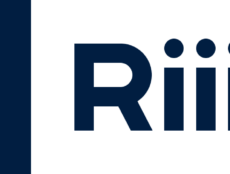
There is an ongoing debate about whether the traditional learning management system (LMS) is becoming obsolete or dying. Previous articles that lay this groundwork include Are Learning Management Systems Worth Improving? and Corporate Vendors Still Attract LMS Investment Funding. Those who lean towards the-LMS-is-dying side of the debate are likely to cite the rise of the learning experience platform (LXP) as the emerging technologies and approaches that render the LMS a thing of the past. It’s worth taking a look at the LXP vs LMS debate in corporate eLearning to get a handle on what it means for companies of all sizes.
Is the LXP Replacing the LMS?
Josh Bersin of Bersin by Deloitte (his articles have appeared in Forbes, Chief Learning Officer, and his own website) coined LXP as a term a few years ago, and it quickly took root. Janet Clarey, Lead Advisor of Tech, Analytics and Learning at Bersin by Deloitte, provides the following definition:
LXPs are single-point-of-access, consumer-grade systems composed of integrated technologies enabling learning. They can do many tasks, such as curating and aggregating content, creating learning and career pathways, enabling networking, enhancing skill development, and tracking learning activities delivered via multiple channels and content partners. By delivering on a central platform, LXPs enable businesses to provide an engaging and learning-rich experience and may lessen their reliance on an LMS or talent suite as the learning hub (source).
What that high-level definition means in more practical terms has been translated by Josh Bersin into seven key characteristics of LXPs:
-
They present content in a “Netflix-like” interface, with recommendations, panels, mobile interfaces, and AI-driven recommendations.
-
They accommodate any form of content, including articles, podcasts, blogs, micro-learning, videos, and courses.
-
They are social, and include social profiles which connect content to people to create authority.
-
They have paths or learning track or trails so you can follow content to a logical learning outcome.
-
They have some form of assessment and often badging or certification.
-
They make it easy to publish your own content as an individual.
-
They are mobile, fun to use, fast and easy to traverse and have great search and embedded learning features.
In short, while the traditional LMS is geared towards the management tasks of administrating, tracking and reporting on a company’s training and learning programs, the LXP has a much more learner-centric approach that puts the learner in the driver’s seat in meeting their current and future learning needs. Traditional LMS vendors have tried to incorporate many features that go beyond their core management focus, with widely varying degrees of success.
But it’s also fair to say that the traditional LMS will continue to play a vital role in the learning and training efforts of many companies – especially the smaller and medium-sized businesses that don’t have the time or money to put into being on the cutting edge of emerging technologies and platforms. In fact, rather than thinking of the LXP replacing the LMS, the more likely scenario is that an LXP will complement and enhance the LMS in many companies. As might be expected, many LMS vendors are adding LXP capabilities to their core offering.
The LXP vs LMS TL;DR
The primary takeaway from this article on the LXP vs LMS debate it is this: The corporate eLearning landscape is one where rapid change is the only constant. It can feel like businesses who need better training and learning and the vendors who develop the solutions to provide it are in a constant state of scrambling to keep up with the pace of change. Instead of playing a zero-sum game of LXP vs LMS vs LRS and whatever-comes-next, most companies would be better off trying to see how each new solution can be leveraged into better learning and training outcomes.
Featured Image: NordWood Themes, Unsplash.









No Comments